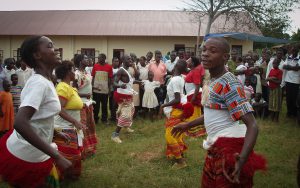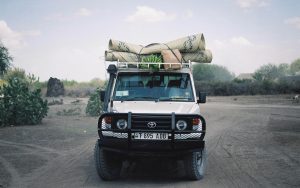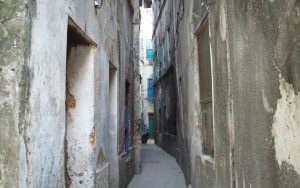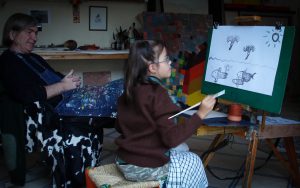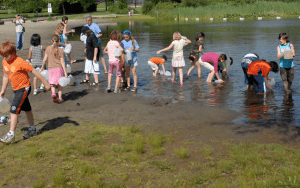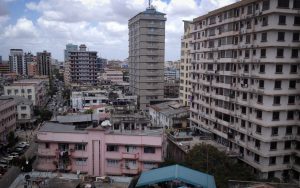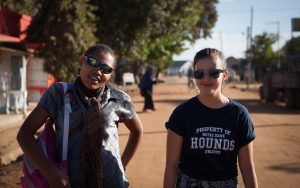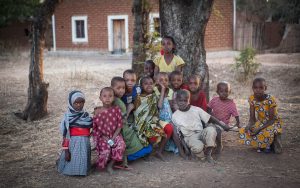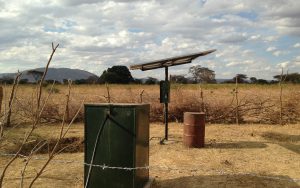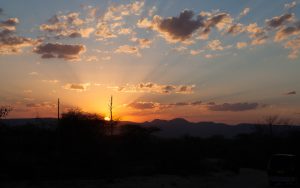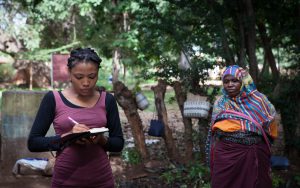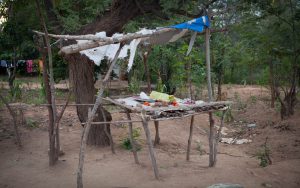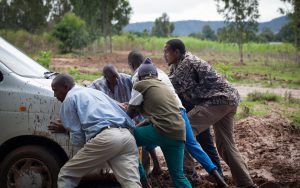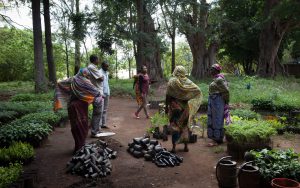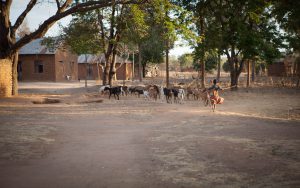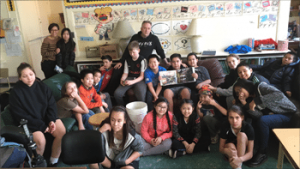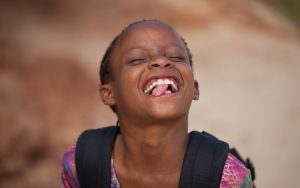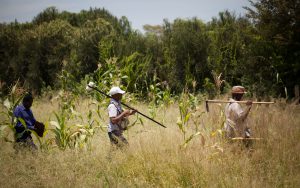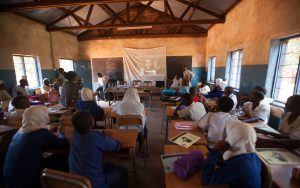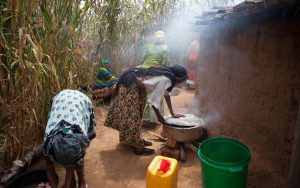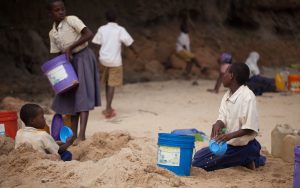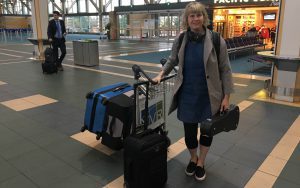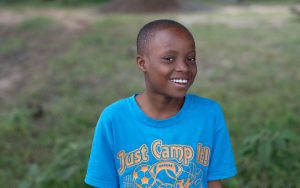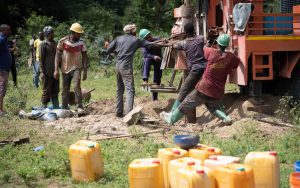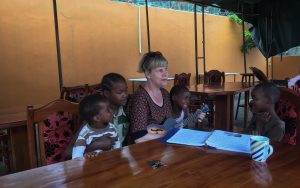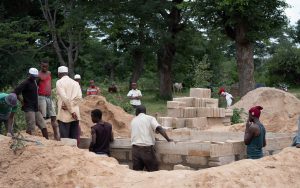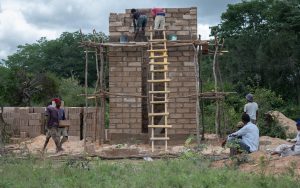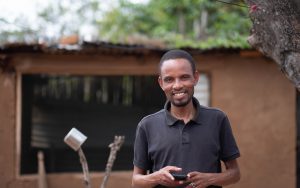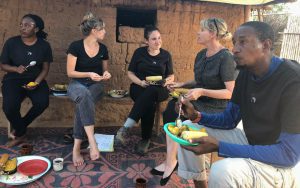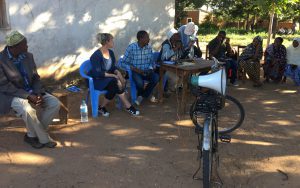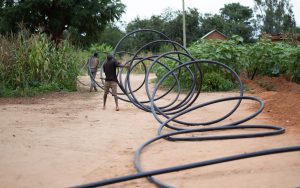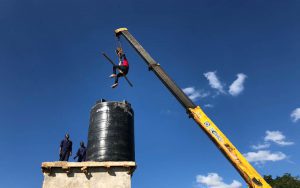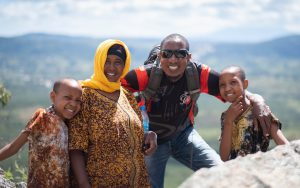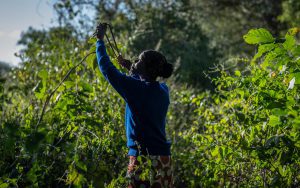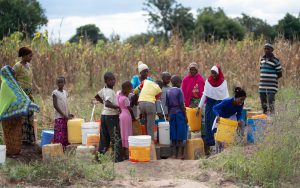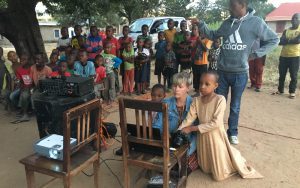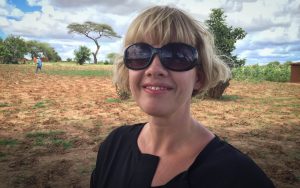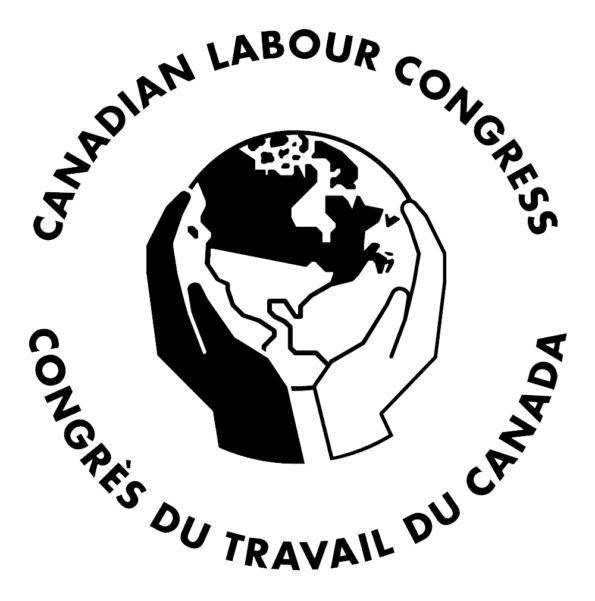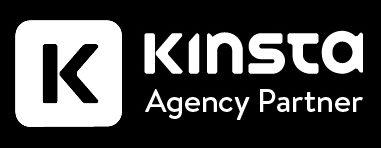Tower construction began on market day, which happened once a month.
Since the project site was right next to the market, the area was ripe with activity. While workers were busy with the construction, people from the neighbouring villages were right beside them buying and selling cows, clothes, and wares. Baraka was with us for the day and spent her time watching the tower being built, listening to music on my phone, and taking pictures like a burgeoning photographer.
The next day, the market had come and gone, but construction continued while the engineers conducted pump tests that would help to determine how much water the borehole would yield. They connected a hose to a pump a few meters from the truck, and then ran the well for six hours while they measured and recorded the water’s drawdown time.
When the tests started, only the team was present, but as news of running water travelled throughout the village, women and children came to fill their buckets. The water was running at full pressure all day, and for six hours, people came and went, transporting their buckets of water by bike and by foot to their homes. Instead of a useless borehole teasing the villages for a couple years while our community scrounged for money for a pump, like in Cheku, the Iyoli villagers were able to benefit from the water almost immediately.


